MANCHESTER-based Paper Recordings released some magical and beautiful house music from the mid-Nineties onwards. The label continues to release great music to this day.
This is the story of Paper Recordings, in the words of people who made it happen.
Salt City Orchestra – The Book (PAP01)
Miles Hollway: “It feels like another lifetime for me. Things have moved on in my life since then but it was such a pivotal thing for me at the time. Twenty-odd years ago. It’s crazy when you think about it in those terms.”
Ben Davis: “Pete, Miles and I all lived together at this point. I’d just finished working for James (the band), Pete was working at the Hacienda, and Miles and Elliot were working behind the bar there.”
Miles: “We just wanted to start a record label. We were children of that Factory Records mindset. It was all about doing it independently, but also revelling in the lack of business sense – no, not a lack of business sense, a lack of commercial sense.
“It was that free-spirited approach, what the hell? We can do this. When I think back at the things we used to do …”
Pete Jenkinson: “We were talking about the label idea for a while. Elliot and Miles had just started working with Si Brad under the new Salt City Orchestra production moniker.
“If my memory serves me correctly – and it’s all a bit hazy – the first real discussions about a label and names were in a bar called Alaska in Lock 69 on Whitworth Street West, just down from the Hacienda.
“We loved talking about it as we were so excited and immersed in the scene at the time, but it wasn’t until the early to mid 90s that we started to hatch real plans – the distribution deal with Azuli was perhaps the catalyst, so thanks go to Dave Piccioni for that!”
“The only philosophy behind the label was that the music production quality was to be the best and that our visuals were unique and graphically bold. Luckily, our first few releases were produced by Si Bradshaw with graphics designed by Paul Cleary.
“Apart from that the only other factor was that the label and its office was a place for us to hang out.”
Miles: “We didn’t have a clue. But Paul Cleary who did all the artwork was instrumental in the early days of the label. It was the coming together of a musical identity and an aesthetic that Paul provided. And an attitude that we all shared – it’s almost punk, but revelling in that amateurism and making a statement without having anything too contrived.”
Pete: “I’m not sure who came up with the idea of faxing the word ‘paper’ to selected journalists, most decisions were collective at the time – although I still love that use of the fax machine. We had a lot of reactions and it certainly opened the door to editorial in the printed press.
“We followed that ‘paper’ fax up with one with a comedy penis a week later. I’ve still got it somewhere in my loft, all 20 sellotaped sheets of it. Now that certainly got a reaction!”
Miles: “It was that whole Manchester spirit of pushing out your chest and taking on the world. That’s what we felt at the time.
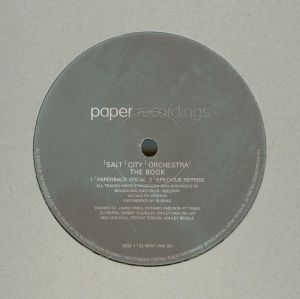 “We were lucky that things just fell into place. It was the right time to do that kind of thing. We were taking musical influences from Chicago and New York and Detroit and British house music, and bringing it all together in that deep house sound that was pretty new at the time. Things fell into place really quickly.
“We were lucky that things just fell into place. It was the right time to do that kind of thing. We were taking musical influences from Chicago and New York and Detroit and British house music, and bringing it all together in that deep house sound that was pretty new at the time. Things fell into place really quickly.
“We were going out, clubbing, running Hard Times, just having a whale of a time.”
Pete: “I first heard The Book in PayBack Studios in New Mount Street. The minute I heard it in a club I knew it was going places. I love the beats, I love the fact that the lyrics were from an Elvis Costello track and I love the fact that it brings back such good memories. It still sounds great on a sunny afternoon.”
Paper Music Issue #1 – Downtime (PAP02)
Miles Hollway: “Getting the residency at Hard Times was when it suddenly became a career. I wouldn’t have described it as that at the time, but it was when I realised, I could make a living out of this.
“It’s those first handful of releases on the label, from around this time, that mean the most to me. That’s not to denigrate the other ton of great records that we managed to put out, but the first few have something special, on top of the music, in terms of what it represented for us, making records, doing what we loved to do.”
“Downtime has always got the most special place in my heart because it was the second release, following on from The Book, and it seemed like it was proof that the first record wasn’t a fluke. We made a good record second time around and it really felt like we were on to something. It was a sort of validation, on some level.
“We could have easily done something and got a really lukewarm reception, and maybe lost heart, but we were doing something we loved and other people appreciated it. However small in the grand scheme of things, we were making some sort of difference.
“It was a vindication of what we were trying to do.”
“I’ve still got Downtime. I’ve still got many copies of it. I don’t DJ out really, not much these days, so I haven’t listened to it for a while. It crops up on mix CDs. But, if I ever do DJ, it’s always in my record bag and it nearly always gets played.”
Ben Davis: “Downtime is, arguably, the definitive Paper tune. It kind of sums up those early days of nu-Brit house with disco-inspired drums and a musicality that broke out of the house music template of the time. Si Brad’s production was a little different to his trademark sound, and I think that comes from Miles and Elliot.
“What made Salt City Orchestra so special was the fact that there were three strong personalities pulling in slightly different directions and this is a great example (even though it’s not actually SCO). It still sounds fresh today.
“This was the early days of the label, when we had an office in 23 New Mount Street with Si Brad’s studio next door. All we had was a desk, a phone and a fax machine, and goodness knows what we did in there.
“I can’t remember when I actually first heard Downtime but I do remember that we all thought The Bridge on the other side would be the bigger track as it was a bit more pumping. Downtime didn’t grab me – but it was a builder.
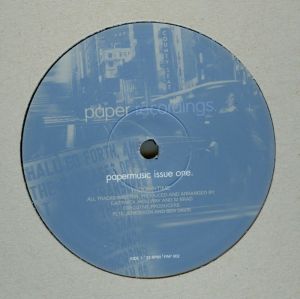 “It is very reminiscent of the era and a hugely exciting time. We were very lucky to start the label at exactly the right time and were at the cusp of nu-Brit house, along with labels like Nuphonic. We had no idea what we were doing but picked it up as we went along.
“It is very reminiscent of the era and a hugely exciting time. We were very lucky to start the label at exactly the right time and were at the cusp of nu-Brit house, along with labels like Nuphonic. We had no idea what we were doing but picked it up as we went along.
“The lack of accounting management would do for us later when we got ourselves into a large amount of debt.
“In those early days, we were putting stuff out by our mates at other clubs who were starting to make music – Scott and Chris at Shindig (New Phunk Theory), myself, Dick Johnson and Mark Bell (Shaboom), and Erik Rug. As we got more successful, we met more people and so the roster expanded.
“Along with The Book, Downtime was the tune that put us on the map. It was a statement of intent and wrote the blueprint for what was to come.”
Chris Todd: “Downtime was nu disco about 10 years before nu disco became a ‘thing’! It sounded (and still sounds) so fresh and unlike anything else around at the time. Si Brad’s production is worth mentioning also, it’s so good, and was a real inspiration to us in the early days – this was the sound we were striving for!
“I probably first heard it round at Jim’s house, or maybe possibly Hard Times. I was in Nottingham at the time (and still am) and Notts had a pretty cool house scene back then with the likes of DiY, Smokescreen, Charles Webster, At Jazz and Inland Knights all in the hood, and loads of cool, small underground clubs – so it was pretty vibey.
“Back then, I’d just finished my degree and was moonlighting between the dole and a load of shitty, part-time jobs. Thankfully, the music making took off quite quickly, so that didn’t last too long. It was when me and Jim first started hanging out and making music together. Salad days!”
Have you still got Downtime? Do you still play it?
“Yes, and yes! It still sounds fuckin mint!”
Those Norwegians – The Kilpisjärvi EP (PAP011)
Rune Lindbæk: “Paper was one of the labels we were digging the most, me and Ole Johan Mjøs and Torbjørn Brundtland (now in Röyksopp). We sent them a demo that became The Kilpisjärvi EP but we never thought they were going to find us.
“One day in 1996, my flatmate said, there’s a message for you on the answer machine – this was back in the days when you had answer machines. They said, it somebody called Paper Recordings or something. And I was like, oh fucking hell. It was a big one.
“But Salt City Orchestra – Downtime, The Book – and Erik Rug, we were digging all that. We bought everything on the label. It’s hard to get an impression about people by fax, but when I met them, I thought, oh what a wonderful bunch. A funny, music-loving, fantastic bunch.
“We really liked them, really a lot, Miles, Elliot, Ben and, the unsung hero, I must say, of Paper Recordings, Pete.
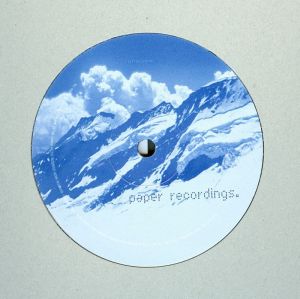 “Pete was the most drunk guy on Saturday night, but come Monday morning, he was the one. That’s often the key to doing a label, you can have a great label but if you’re not very well organised, that doesn’t help, at all.
“Pete was the most drunk guy on Saturday night, but come Monday morning, he was the one. That’s often the key to doing a label, you can have a great label but if you’re not very well organised, that doesn’t help, at all.
“There are great labels that have two releases, four releases, but that’s it.
“So yeah, Pete was the secret, key ingredient to Paper Recordings.
“They gave me a Paper Recordings T-shirt and I was wearing it at Amsterdam Dance Event and went into Outland Records, a really good shop that used to be in the red light district.
“And the guy behind the counter said, ah Paper Recordings. And I say said, ah yeah, I do a bit of recording for them, and the guy was like, oh shit, and he ended up giving me a bunch of cool records from their own label. The guy was a massive fan.
“Around this time, the club Skansen in Oslo was named the third best club in the world by The Face, after Body & Soul in New York and the Basement Jaxx night in Brixton. It was very pivotal for dance music in Norway..
“You can say that Paper – and a few other labels like Guidance, Glasgow Underground, U-Star and Discfunction – was the sound of Skansen, it was the emergence of proper dance music in Norway. Skansen was a very important place – and Paper was deeply integrated.
“The name, Those Norwegians, came because we were kind of made fun of when we first started off recording, back in the days, because Norway was always like nil points in the Eurovision song contest. It was like a piss take of ourselves, actually, but it became a thing of pride, that we were on a British label that was very, very important in Norway.
“Because we were always looking towards England and that.
“There’s a sound effect on The Kilpisjärvi EP, some local slang that not even people in the rest of Norway would understand. It says Slafsedupesselurskoilta, which means, basically, do you suck cocks head?
“No one understands it. Unless you’re from Tromsø, and then you’re like, hehehe!”
Dirty Jesus – Don’t Fuck With My Shit, Late Night Cruisin mix (PAP014)
Laurin Fedora aka Sleazy McQueen: “It’s nearly 20 years old and still sounds like house music perfection. Disco nods alongside modern production. It’s emotional and funky at the same time.
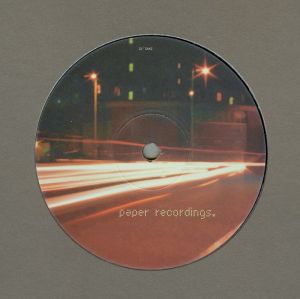 “The first time I heard it was in 1999. I was going out to hear DJs five or more nights a week in the Washington DC and Baltimore area. I was at a university in DC at the time, and the majority of events that I went to were house music. That was due to the popularity of house music in the region – in short, it was pure luck and kismet.
“The first time I heard it was in 1999. I was going out to hear DJs five or more nights a week in the Washington DC and Baltimore area. I was at a university in DC at the time, and the majority of events that I went to were house music. That was due to the popularity of house music in the region – in short, it was pure luck and kismet.
“I was just finding out my deep love of house music, through the lens of artists like Doc Martin, Mark Farina and their west coast contemporaries. Though I was a student, I worked two jobs, ran cross-country and still found time for clubbing (lots of coffee, not a lot of sleep – the formula of everyone under 20!)
“After two years in DC, I transferred to another university, but I always have a special place for those friends at that time. It felt like magic.
“I can come back to Don’t Fuck With My Shit year after year and find nuances that didn’t touch me the first time around, while the bass and those Rhodes will always strike the right chord and touch a deep emotion.”
Problem Kids – Miles Away, Two Bit Whore mix (PAP023)
Pete Jenkinson: “It was one of those tracks that has an amazing bassline that just shakes the floor when it kicks in. Rocky and Mark were blowing up on the DJ scene in the UK and they sent us this single, the first of many releases for the duo with Paper.
“I was in our New Mount Street office and this was a moment of pure excitement when we put it on the stereo – straight into Si Brad’s studio for a proper listen. I couldn’t wait to release it!”
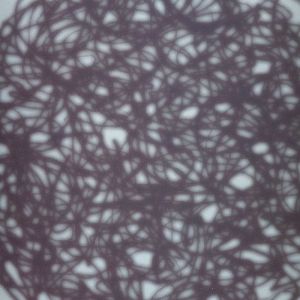 “It reminds me of when Miles and Elliot were playing at Wobble in Birmingham for Phil Gifford and Si Long. I remember this being one of the first tracks that we played that night, and it had the floor jumping in unison.”
“It reminds me of when Miles and Elliot were playing at Wobble in Birmingham for Phil Gifford and Si Long. I remember this being one of the first tracks that we played that night, and it had the floor jumping in unison.”
Why is it such an important record for you?
“It proved that our sound was an outlet for quality music and joy on the dancefloor. It also made me realise that it was a passport to some brilliant life experiences.”
Crazy Penis – Starwar (PAPLP004)
Danielle Moore: “Starwar was my introduction to Crazy Penis. It reminds me of after parties and good bloody times. Mellow yet punchy.
“It was at an after party at a place in Heaton Moor where everyone used to descend post Robodisco. I went out as much as I could afford as my energy levels and love of dancing were high. Robodisco, Electric Chair and Friends & Family were the main offenders. I was a part-time DJ and worked as a sales manager at a sports company.
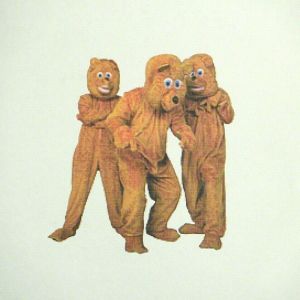
MINOLTA DIGITAL CAMERA
“Starwar reminds me of Manchester, 1999, meeting a lovely new bunch of mad uns who are still dear, valued friends now – and my introduction to the lads in the band. It reflects a time when going out was very important, as was socialising – without social media and mobile phones. People actually interacted!”
Have you still got Starwar?
“YES!”
Do you still play it?
“NO!”
Kenny Hawkes – Ashley’s War Part 2 (PAP038)
Anna Greenwood: “One Paper record that is important to me? DON’T MAKE ME CHOOSE. I don’t want them to think I don’t love them all equally.
“What I like about this record is the maximum use of different keyboard noises (I am not a musician, can you tell?) on the DJD mix, the tripped-out vibes of the Two Lone Swordsman mix and the spooky laugh – even though it scares me – on Kenny’s Space War mix. And the artwork. I loved the Paper identity.
 “I think I heard it in the office as I was working for Paper at the time. I was about 12. But despite this I was going out a LOT. I wasn’t a raver per se, more of a hedonist. I loved pop music the most. And still do.
“I think I heard it in the office as I was working for Paper at the time. I was about 12. But despite this I was going out a LOT. I wasn’t a raver per se, more of a hedonist. I loved pop music the most. And still do.
“I’d just quit university because it didn’t agree with me but working for a record label and having a laugh every day very much did.
“In between listening to Radio 1, lengthy discussions about lunch options and being told off by Ben’s mum for not sounding professional on the phone, we occasionally listened to demos and acetates when they came back from being pressed and smelling good.
“This isn’t a euphemism or metaphor, I really like the smell of acetate.”
Does this record remind you of any particular time, place or person?
“The Paper office, smoking at my desk, Friday afternoon ‘meetings’ in the Briton’s Protection, and Kenny, of course. Kenny was one of the first artists I got to know as he used to call the office all the time.
“We used to talk for HOURS, mainly about nonsense, as that was the underlying connection between us all – nonsense and silliness was key.
“We were a big gang, it was ace. Working for Paper was the best job ever (after my first one, in a sweet shop, even though it did knacker my teeth).”
Why is it such an important record for you?
“Because Kenny was ace. It has more sentimental reasons now as, sadly, Kenny died a few years ago. But I liked it because it was him rather than the sound it made.
“My heart belonged to pop music so, as there was no dance routine attached to it, it was more about the person than the, er, beats.”
Have you still got Ashley’s War? Do you still play it?
“Yes. I’ve got a load of Paper stuff. I play some of them out now as my musical taste has expanded from the top 40. A bit.”
Hot Toddy – The Big Crunch (PAPLP008)
Ravi Brunsvik of De Fantastiske To: “My god, the funk! The funk, the funk, the funk!
“I’m pretty sure I was 16 or 17 years old when I first heard this, the first I heard of Paper releases. I spent most of my waking hours in a studio, either listening to music or attempting to make some of my own. I had found the Super Magic album through the internet, and played songs from it in my sets pretty often.
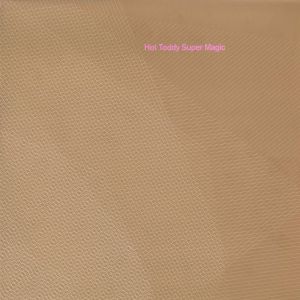 “I don’t think I went out a whole lot around then – in fact I don’t think I was even outside that much, apart from during gigs, hah!
“I don’t think I went out a whole lot around then – in fact I don’t think I was even outside that much, apart from during gigs, hah!
“It reminds me of one of my first residencies, where I’d play it a lot. The residency wasn’t all that great, but ended up pushing me in the right direction musically. Super Magic was part of that journey!
“It inspired me, and still does. I only have a digital copy of it, but that gets some play here and there. Truth be told, I play Marius’ track a whole lot!”
Rune Lindbaek – Junta Jaeger (REPAP02)
Jason Boardman: “What do I like about this record? Everything – dramatic intro, killer sampled groove, sexy climax.
“It would’ve been first heard in the Paper office on Whitworth Street in 1998. Lots of records used to appear there from random sources, but this was a stone cold gem for me.
“We were mostly working at South, the Boardwalk, the Hacienda and Hard Times as DJs, and the seeds of Aficionado were also being sewn around this time.
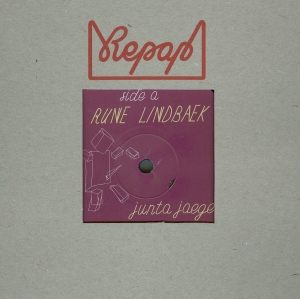 “Generally, I would work as a DJ from Thursday through to Sunday and chill or be in the studio in the early part of the week.
“Generally, I would work as a DJ from Thursday through to Sunday and chill or be in the studio in the early part of the week.
“We were all out all the time, probably most nights. It was quite a tight knit group of people.
“Junta Jaeger was played at all of those venues, which is a rare thing, to have a record that you could programme into a set at all of those spaces and it would work. It never failed!
“I lived on Orchard Street in West Didsbury at this time, pre gentrification. Leo’s newsagents was still open then.
“I got to meet Rune and we are still friends today. He did a remix for Aficionado Recordings and he was an important catalyst for the Norwegian scene. He opened up the path for people like Terje, Prins Thomas, Lindstrom and even Kings of Convenience, but he wouldn’t make any claims to that, he’s very relaxed at all times. And still making brilliant and relevant records.
“Yes, I still have Junta Jaeger, and I’d still play it over playing Bill Withers’ You’ve Got the Stuff, which it samples.”
Ben Davis: “This shows off the other side of the Paper and came out on Repap, the anything-goes sister of the label. We have always been about more than just house music and, going through the back catalogue, it’s pretty varied – although people used to get the hump if it wasn’t the ‘trademark’ Paper sound, which we always struggled with.
“Junta Jaeger is psychedelic disco that can be dropped anywhere, anytime. For some reason, we have always had a really strong connection to Norway, and Rune was the one who started it. We hooked up again recently and he’s still the same eccentric he always was, making amazing music.
“I think the first time anybody heard this was at Rune’s auntie’s house near Southport…”
Rune Lindbæk: “It wasn’t my auntie’s house. One of my best friends (and flatmate with the answer machine, remember?) Philip, we grew up together and we’re still really good friends – his father is Biddu, the man behind I Love to Love and Kung Fu Fighting.
“Biddu met this Norwegian au pair in his hometown London on the night of the moon landing in 1969, and they had one steamy night together.
“Philip’s mum was living in England and then went back over back to Norway so Philip grew up in Tromsø. But then she moved back to England again. She lived in Davenport near Stockport and I used to stay at her´s while raiding the records shops of Manchester.
“So we had to have a meeting and the Paper guys came over to her house.”
Ben: “We were pretty much all earning a living from DJing at the time, plus I had Shaboom Records on the go in Blackpool. Hard Times was massive and there was a circuit of some of the best clubs in the country that we were lucky enough to play at – the Garage in Nottingham, Space in London – it was a really exciting time.
“Miles and Elliot were playing all over the world, especially in Portugal and we did a tour of New Zealand every January when we would hang out for a month. Glory days!
“This was in the heyday of our night, Robodisco. It started off on a Thursday at the Paradise Factory with Derrick Carter and Moonboots and we took it around virtually every venue in Manchester.
“It was great to be able to book all the artists we wanted to hear play and now it reads like an A-Z of brilliant jocks – Harvey, Lil Louis, Gemini, Angel Moraes, Herbert, Maurice Fulton, David Holmes, Weatherall, Josh Wink etc.
“We had Rune play a few times and he blew us away every time with his psychedelic sets. One time at Sankeys, he played a record that started with about three minutes of percussion and we were elbowing Sally from A Man Called Adam out the way to ask what it was.
“It then turned into a battle to license it for our respective labels. They won.
“It shows that there is so much more to Paper than what’s seen as the ‘Paper sound’. It’s got disco, rock, psychedelia, breaks, and more besides, and I think it shows that we’re an open-minded label. If you have a dig around in the catalogue, there is a lot of different music going on.”
Crazy Penis – Do It Good, We Found the Parts mix (PAPCD022)
Marius Sommerfeldt of De Fantastiske To: “It is hard to pick just one Paper track, as there is a lot of history, but my ‘renaissance’ with the label was this track from the amazingly selected and remixed Crazy P album A Nice Hot Edit With.
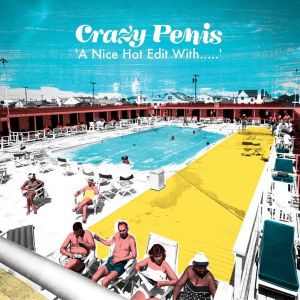 “I first heard it when me and some friends had this crazy private rooftop party in Oslo, and the temperature was way above 20 degrees, which is quite unusual here. To sum up the party, it was packed and boozy, and the soundsystem was too loud.
“I first heard it when me and some friends had this crazy private rooftop party in Oslo, and the temperature was way above 20 degrees, which is quite unusual here. To sum up the party, it was packed and boozy, and the soundsystem was too loud.
“I’ve always been a fan of Crazy P and it kinda marked the time when Paper Recordings ‘returned’ on my radar.
“I met this British guy at the party wandering around with his backpack handing out CDs to the DJs playing at that time. I think I was playing for my friend Olle Abstract at his birthday party. Do It Good was on the CDs – the ‘backpack guy’ was actually Ben.
“In the middle of my DJ set, one neighbour arrived and threw the electricity cable from the rooftop yelling, turn off this shit! It was during Do It Good…
“It became a regular in my DJ set. I still play Do It Good from time to time. It is such a good record!”
Crazy Penis – Give It Up, Laid mix (PAP088)
Chris Massey: “It’s such a straightforward and almost very predictable mix that does very little in its run time – no huge white-noise breakdowns, no drama – and yet it’s so captivating and intriguing at the same time.
“There’s very little in the way of chord/key changes and just a fraction of Danielle’s vocal, which makes up the main hook
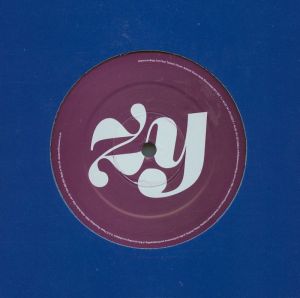 “The first time I heard it was when me and a friend had gone to the Trafford Centre, as he had not long passed his driving test. There was an offer on Fabric CDs at HMV. I bought the Plump DJs one and my friend bought the Jacques Le Cont one, which has got this track on it.
“The first time I heard it was when me and a friend had gone to the Trafford Centre, as he had not long passed his driving test. There was an offer on Fabric CDs at HMV. I bought the Plump DJs one and my friend bought the Jacques Le Cont one, which has got this track on it.
“At the time, I never knew it was Crazy P or anything to do with Paper. I think I was probably about 24/25 at the time. I was living in Bolton (as I still do for my sins), with a dreary, non-existent social scene and very little good music.
“I would have still been in the catering industry, working as a chef (my original qualified profession). Or it may have been when I jacked in being a chef to work at an insurance place, which was as boring as it sounds but gave me weekends free for DJing.
“I was running my own night with a friend at Manto in the Village. Saturday night to Sunday morning, 9pm to 8am. Rock n fucking roll!
“Hearing Give it Up in my friend’s car on the way back from the Trafford Centre is one of my earliest memories of a label that I now work for, and also a group that I hold in very high regard!”
Daco – The Aquarium EP (PAPD06)
Ben Davis: “Paper Mk2 started because we had been working the back catalogue to clear a sizeable debt that the label run up. I had been working in the studio with Danni and Tim from Crazy P on The Bionics and was looking for an outlet and Daco sent us the brilliant Aquarium EP.
“It seemed like a natural progression to put some original material out, then people started sending us music and before we knew it we were up and running.
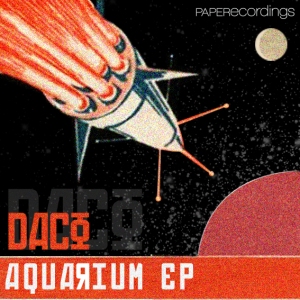
“To be honest it took a few releases to get our groove back and find a sound that bridged Mk1 and Mk2. It was like starting from scratch again, with no big names and a lot of the artists we signed were at the start of their careers. They are now on their third and fourth releases and beginning to really build a reputation.
“Daco’s one of the label’s older heads, but it’s been very exciting to watch the development of our younger artists too. They have the potential to do really well in the coming years.”
Proviant Audio – Real Love Tastes Like This! (PAPD21)
Tom Lonsborough of 2 Billion Beats: “I was doing a bit of admin work for Paper in 2011, and I was driving back from Ben’s, in the arse end of nowhere, round Mytholmroyd or somewhere, and he’d given me the Proviant Audio album – Real Love Tastes Like This! – to listen to in the car on the way back.
“It’s made by this guy [Mathias Stubo], I think he was like 18 at the time, and this ridiculously talented band. I was really struck by how mature it all sounded.
“It’s the same kind of set up as DJ Shadow’s Endtroducing, in that it’s made from samples, but the samples have been recorded and chopped up, so they’re like unique samples. He’s recorded the band, doing their thing and then chopped it up and reordered it.
“There are about three tunes within each tune, and there’s a very cut-and-paste feel to it. It’s jazzy, housey disco, and just so accomplished. His parents were jazz musicians or something.
“It’s one of those that you can listen to as an album, rather than skipping through the tracks like we all do these days. You can just listen to it unfold. If one of the tracks comes up on random on iTunes, I have to listen to the rest of the album.
“For me, it encapsulates what I think Paper is about, eclecticism. moving from straight-up basement house-type stuff into something where anything goes. It’s an attitude that’s severely lacking elsewhere.
“A lot of modern dance music labels, they have a sound. Whether it’s 20/20, or Hot Creations, or Crosstown Rebels, they have a certain sound, all the records on those labels.
“A lot of music people are afraid to stray away from what’s expected of them. Tracks have to fit in with a label’s remit and anything outside that is seen as diluting what the label’s about. You can see why people do that, on one level, but it’s not very interesting.
“What I like about Paper Mk2 is that they put out the full spectrum of stuff. From the playful Flash Atkins stuff to the slightly more serious Norwegian stuff, to the disco-tinged stuff and the more banging tracks.
“And then there’s this amazing Proviant Audio album…”
2 Billion Beats – Noise In Your Eye (PAPDLS186)
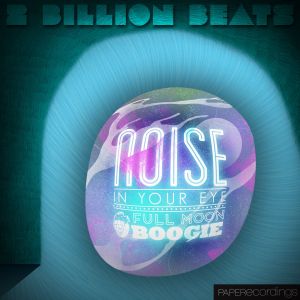 Ben Davis: “These two, Tom and Col Hamilton, are great standard bearers for the second life of Paper. It’s great house music that doesn’t particularly fit any scene but has all the right reference points. In a just world, this would have been massive as every time it gets dropped it takes the roof off.
Ben Davis: “These two, Tom and Col Hamilton, are great standard bearers for the second life of Paper. It’s great house music that doesn’t particularly fit any scene but has all the right reference points. In a just world, this would have been massive as every time it gets dropped it takes the roof off.
“It’s only a couple of years ago, but I think it was a time when I realised we had a new generation of artists and had escaped the legacy of the label’s past. It came out as a double header with Leon Sweet’s Show You for our 150th release, and both records stand up with the best of the catalogue.
“Since we re-started, it has been like re-building from the bottom up and now we have got some super-talented producers who are on their third and fourth releases and building a name for themselves, people like Leon Sweet, Richard Seaborne, De Fantastiske To and Chris Massey, plus some older heads like Daco and Ralph Myerz.
“I think 2 Billion Beats could be massive and fill the Crazy P-shaped hole on Paper. They smash it out the park live, the production is amazing and I think they have real crossover potential. We’re putting their album out and it’s a real game changer.
“They are also nice guys, which is really important to me these days. I’ve worked with enough knobheads over the years to not have to do it anymore, and there is a really nice family vibe going on at the label. All the artists are super supportive of each other.”
Flash Atkins – Drug Empire (PAPDLA193)
Laurin Fedora: “Though there are uncountable releases from the Paper catalogue that spark nostalgia, it’s been the releases at the end of their 19th year of existence that feel the most at home.
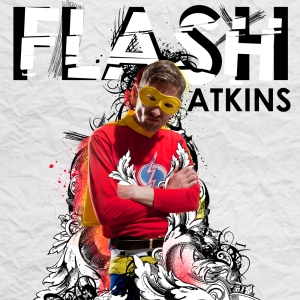 “Flash Atkins’ Drug Empire stands as the contemporary embodiment of the very grooves that started the label – strong roots in funk and soul underpinned by the bread and butter of house music, Roland drums.
“Flash Atkins’ Drug Empire stands as the contemporary embodiment of the very grooves that started the label – strong roots in funk and soul underpinned by the bread and butter of house music, Roland drums.
“Take this alongside Leon Sweet’s Sunny Bigler and we see a story told encompassing both dance and music, song structure and groove. The same bold ethos then as now.”
* * *
Pete Jenkinson, alongside Ben Davis, relaunched Paper as a digital label a couple of years ago. Pete doesn’t really go out dancing much:
“I prefer a gig these days, but will still shake my booty at the occasional party – not such a good look.”
Paper office supremo Anna Greenwood is now a ‘DJ, singer, performer and full-time show off’:
“My life is one disco dance. I’m a DJ / performer now so it’s de rigeur.”
Jason Boardman still DJs, runs the Aficionado label with Moonboots, and goes to lots of parties. Is there dancing involved?
“There’s loads of brilliant people, new and old, that keep the fire burning, so it’d be rude not to.”
Danni Moore travels the world as part of Crazy P. She definitely still goes out dancing:
“Flipping dead right. I always will. It shapes my character and keeps a little flab at bay. And I love music.”
Chris Todd, who is one-third of Crazy P alongside Danni and Jim Baron, DJs a lot and spends “a fair amount of time in clubs at weekends, and dancing is still involved to varying degrees. We’re lucky enough to be involved with some pretty cool events so I still get my wriggle on.”
Chris Massey is busy with his own productions, DJs all over the place, and goes out dancing, “as much as I can do!”
Ravi Brunsvik and Marius Sommerfeldt of De Fantastiske To continue to collect records, DJ on Oslo´s club scene and produce “modern club music with a twist of oldschool, where rhythm boxes, acid generators and jazzy rhodes meets the dancefloor”.
And do you still go out dancing?
Marius: “If you could consider my weird moves dancing .. yes.”
Ravi: “Not as much as I’d like to!”
Laurin Fedora still go out dancing “if the right DJ is in town, yeah! Last time I did was at a gig I played in Missouri a few months ago. I played between Robbie Hardkiss and Derrick Carter. It was sweaty.”
Miles Hollway goes dances “occasionally and badly” these days, and “not as much as I’d like to.
“I work for an internet company and I manage a team of people designing and building web platforms. Managed web hosting, that kind of stuff.
“It’s interesting, I started a new job two or three months ago, in Rochdale, and met a number of key people in the business and half the people I met, the first thing they wanted to know about was Hard Times. They were all telling me stories about when they used to go there. It’s funny, 20 years later, in a company of 300 people, how regularly that comes up in day-to-day conversations.
“On one level, it’s quite strange when you’re in a completely different environment, but on another level, it’s really nice to think that people have got really fond memories of those times, and shared nights out.
“They were simpler times. Everything gets more complicated – kids, mortgages, whatever – but I look back on those times as some of the most amazing times of my life. I was lucky enough to travel the world and experienced a whole load of amazing places, and a whole load of amazing music, and there isn’t one thing about that time that I would change or regret.
“I don’t think I could’ve carried on doing that. I don’t think I was destined to do that for the rest of my life. I always knew that at some point I wanted to do something else, something that would exercise a different part of my brain. I needed to go from right side to left side, or the other way round.
“It’d be nice to experience some of that again. Obviously not to make a living out of it, but to revisit some of those experiences would be lovely. I suspect that ship has sailed. But I look back on those times with very fond memories.”
Ben Davis is keeping himself busy with his Flash Atkins alter ego and a hectic Paper release schedule, including forthcoming albums from 2 Billion Beats and Ralph Myerz.
“We started Paper Disco a couple of years ago and have been releasing our Trash The Wax compilations that have been doing really well.
“We have also started making a film called Northern Disco Lights: The Rise and Rise of Norwegian Dance Music, which has been really interesting and a big learning curve. Hopefully it will be out in 2016, when we’ll be taking it round the film festivals before putting it on TV.”
Do you still go out dancing?
“Not as much as I’d like but you’re a bit limited with a toddler and family life. I still play all around and every year talk about making a pilgrimage to Southport / Electric Elephant / Sub Club – but never quite make it.”
And as for “Balearic champion, cosmic king and disco viking” Rune Lindbaek…
“I’m actually working on a remix for Todd Terje, he has a label, Olsen Records. It’s an old track, called Fotspor. It’s a weird thing. I had a club for eight years in Oslo. It’s not particularly famous but it was a very, very good one, called Nomaden.
“We found that the guy who did the record had a record shop there in the 70s and was importing records from England. He used to have lock ins after the shop was closed and they used to have bongoes and hashish and stuff, and he made a great, fantastic disco track that I used to play, Fotspor. It became sort of an anthem at this monthly night I had at Nomaden.
“It had a fantastic lyric on it, everybody loves it. It says, I’m walking around in my own footsteps and I wanna go to New York, LA, San Francisco. It’s a great record. Everyone’s like, wow, what a fantastic disco track. Because, in Norway, we don’t have a proud history of really good disco records. There are some good ones but mostly it’s shit, y’know. But this is a proper, proper one.
“And then, one of the regulars there, who used to ask for it all the time, he told me that he’d tracked down the guy who made it. He’d gone to America. This was one of the best disco records ever made in Norway. So he got to know him and managed to find the master tapes in the national archive of Norway and transferred it.
“And Todd Terje said, okay, I’m going to release this on Olsen. So he’s done a mix and now he hassling me because I sort of promised I’d have it done over the weekend…”
Pingback: 200 Years of Paper Recordings - Paper Recordings
Pingback: Paper Recordings is 25: My Paper Highlights – Freer Sounds